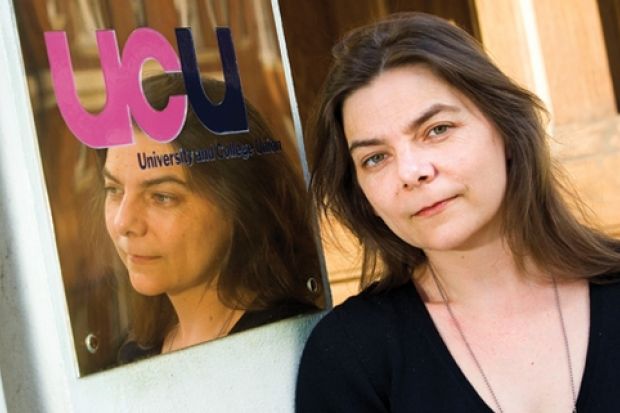Plans to increase direct engagement between the University and College Union and its members have been overwhelmingly rejected by the organisation's elected representatives.
Delegates at the union's annual congress, this year held in Manchester, voted by about four to one to oppose reforms championed by Sally Hunt, the UCU's general secretary.
Moves to elect lay negotiators via a one-member, one-vote system and to ballot the national membership on final pay offers as decided by negotiators were voted down by a majority of UCU delegates on 10 June.
A third proposal, to reduce the size of the union's national executive committee, was also rejected.
Instead, a motion was carried to set up a commission to examine the size of the UCU's national executive committee, which will report back to congress in 2013.
The commission will comprise five representatives from higher education and five from further education, who will consult local branches about the proposed changes.
In her speech on 9 June, Ms Hunt told delegates that any attempt to block or delay her reforms would ignore the wishes of rank-and-file members.
Heckled by some delegates, she said she had a clear democratic mandate to make changes thanks to her recent re-election and the 80 per cent of members who had backed her reforms in a recent online poll.
But members of UCU Left argued that the e-survey was "merely a snap opinion poll which tells us little and cannot be regarded as a mandate".
Reducing the size of the executive would "undermine union democracy and turn UCU into an ineffective, top-down servicing union rather than a campaigning member-led union", argues a UCU Left publication distributed at the event.
Catherine Pope, professor of medical sociology at the University of Southampton, who proposed the motion to shrink the executive, said the vote by representatives risked alienating union members as it ignored their views.
"We now have a system where those who happen to be in a room during a half-term holiday will select the people who will decide the future of our union," Professor Pope said.
"I do not believe we can say we have listened to our members after what happened this weekend. This vote does not reflect the majority of our members' views."
Professor Pope said the reforms were needed because the union was dominated too heavily by "factions and interest groups" more concerned about pursuing politically motivated agendas than tackling core issues of pay, pensions and academic freedom.
"I want to have arguments about the future of higher education," she said. "I do not want to hear endless debates and infighting about whose version of the left wing is the best.
"I have 900 members at Southampton and they are broadly supportive of what Sally put forward. What happens at congress is largely irrelevant to them."
But Tom Hickey, lecturer in critical theory at the University of Brighton, denied that opposition to Ms Hunt's reforms had come solely from UCU Left.
"[It] only had about 70 members in the hall out of about 570 delegates," he said. "This was about having a proper debate and not rushing headlong into a decision.
"I am not personally opposed to reducing the size of the national executive committee, but it has to be decided based on what the [executive's] function should be.
"You do not determine the size of the committee and then decide what its function should be."
An open letter published in this week's Times Higher Education signed by 37 academics condemns Ms Hunt's ballot of members, saying it was "conducted in undue haste following your re-election as general secretary in pursuit of a narrow political agenda to stifle legitimate opposition within the union".
Ms Hunt said she was disappointed by the results as "the extra support for branches which was to be paid for from a smaller committee will now have to be postponed".
She added: "However, I will engage fully with the commission, making a full submission myself. It is important that the views of rank-and-file members are heard."
Register to continue
Why register?
- Registration is free and only takes a moment
- Once registered, you can read 3 articles a month
- Sign up for our newsletter
Subscribe
Or subscribe for unlimited access to:
- Unlimited access to news, views, insights & reviews
- Digital editions
- Digital access to THE’s university and college rankings analysis
Already registered or a current subscriber? Login
